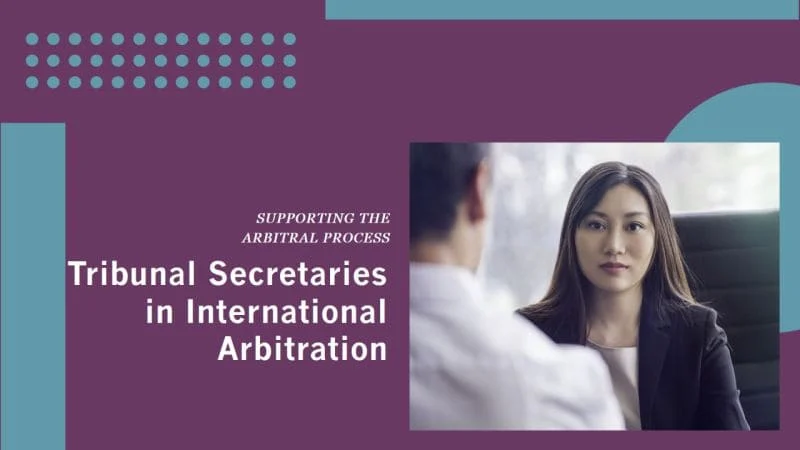While the common perspective is that FIDIC is considered gold standard, stakeholders must exercise caution about the overarching effects of having clauses contravening the Indian Contract Act.
The construction industry in India does not subscribe to any standard form of construction contract; however, some of the commonly used forms include the suite of contracts published by the International Federation of Consulting Engineers (“FIDIC”), the Institution of Civil Engineers (“ICE”), and the model published by the Indian Institute of Architects (“IIA”). Governmental construction authorities, such as the National Highways Authority of India (“NHAI”), etc. One standard FIDIC form extensively used in the Indian construction industry is the Plant and Design/Build Contract. Design-only contracts prevalent in India are largely inspired by the FIDIC Conditions of Contract for Plant and Design/Build (the “FIDIC Yellow Book”).
POINTS TO PONDER:
👉When the governing law of the contract is Indian law, there are a number of laws or legal provisions that cannot be excluded or modified by way of an agreement between the parties.
👉 The scheme of the Indian Contract Act 1872 is such that it allows parties to incorporate any incident or event that is not contrary to or inconsistent with any provision of the Act. There are various provisions under the Contract Act, which specifically mention ‘in the absence of a contract to the contrary’ or ‘unless otherwise provided’.
👉 When a provision under the Contract Act does not contain such a stipulation, it would not be open for the parties to contract out or exclude the applicability of such a provision.
FIDIC v Indian Contract Act:
👉 Claims and Disputes: Strict time bars for claim submissions (e.g., 28-day rule) are often struck down by Indian courts if they lead to forfeiture of legitimate dues.
👉 The Engineer’s authority: The Engineer acts both as the employer’s agent and dispute adjudicator, breaching the principle of ‘no one should be a judge in his cause’.
👉 Termination by Employer/Contractor: One-sided termination rights and broad default definitions are prone to abuse and are often challenged in Indian courts.
👉 Risk and Responsibility: Broad allocation of risk without reference to equitable principles can violate the “doctrine of proportionality” under Indian administrative law.
👉 Employer’s claims: Allows unilateral setoffs without due process—a concept disfavoured by Indian courts.
Legal principles from Indian courts:
👉 No clause can override the Indian Contract Act or constitutionally guaranteed rights.
👉 Engineers or the employer’s representatives cannot act as final arbitrators.
👉 Time-bar clauses are not enforceable if they cause forfeiture of legitimate dues without prejudice.
👉 Dispute resolution steps (like DAB) must align with the Indian Arbitration Act and are not sacrosanct.
CERTAIN CLAUSES THAT REQUIRE AMENDMENTS
Extension of Time
Why amend: Tends to exclude relief for Employer-caused delays unless explicitly claimed under strict procedures.
Amendment: Provide automatic entitlement for delays caused by the Employer, or for Force Majeure. Insert equitable relief consistent with Indian contract law.
Payment
Why amend: Payment delays are common in Indian public projects. FIDIC allows for interest but lacks strong enforcement or escalation mechanisms.
Amendment: Add deemed approval provisions if payments are not certified within a reasonable time and allow for suspension of work in the event of persistent non-payment.
Risk and Responsibility
Why amend: Shifts nearly all construction risk to the Contractor, including acts of the Employer and state agencies, often impractical in Indian PPP/EPC contracts.
Amendment: Risk-sharing must be restructured through a balanced matrix, considering delay attribution and force majeure definitions aligned with Indian precedents. Insert a risk allocation matrix as an annexure. Carve out clearly Employer and “Authority” risks like delays in permits, land acquisition, utility shifting, etc.
Insurance
Why amend: FIDIC assumes international insurance availability and standards.
Amendment: Align with Indian IRDAI norms, specify local insurer requirements, and add the Employer’s obligation to facilitate local approvals for insurance claims.
Force Majeure
Why amend: FIDIC’s definition is narrow and lacks reference to the Indian legal interpretation of frustration of contract (Section 56).
Amendment: Expand to include government action, pandemic, embargo, and regulatory change, especially considering Indian precedent post-COVID.
Claims and Disputes
Why amend: The clause imposes a strict 28-day notice period, which Indian courts often disregard if it leads to unjust forfeiture.
Amendment: Modify to allow reasonable extension based on circumstances and remove the absolute forfeiture language. Add references to Sections 55 and 73 of the Indian Contract Act. Allow for relaxation based on reasonableness, particularly where the Employer is not prejudiced. Also, modify to ensure arbitration follows the Indian Arbitration and Conciliation Act, 1996.
PRE-ARBITRAL STEPS:
Indian law adopts a nuanced approach when it comes to enforcing pre-arbitral procedural requirements found in construction contracts, including those modelled on FIDIC. Two prominent aspects often tested before Indian courts are (1) the validity and enforceability of time-bar clauses relating to contractor claims and (2) the mandatory or directory nature of dispute resolution mechanisms such as DAB processes.
While the Indian judiciary values contractual certainty, it also recognises the importance of commercial practicality and fairness.
Enforceability of time-bar clauses
👉Several Indian contracts treat submission of a notice or claim in a timely manner as a condition precedent to any entitlement. For example, contracts issued by the National Highways Authority of India (NHAI) typically provide that:
👉If the Contractor fails to issue a notice within 15 days of becoming aware, or when he ought reasonably to have become aware, of the relevant event, he shall lose the right to seek an extension of time or make any related claims arising from that event.
👉This reflects a broader trend in Indian construction practice where notice and claim periods are more stringent than international standards.
👉Clause 20.2 of the General Conditions introduces time limitations for notifying and substantiating claims concerning extensions of time, additional costs and, in some cases, loss of profit specifically in relation to excusable or compensable delays or disruptions; however, this does not extend to variation claims that are formally instructed or approved by the engineer. Such claims are only governed by the applicable legal limitation periods of the country, not by FIDIC’s internal time-bar clauses.
👉While FIDIC stipulates a more generous timeline (i.e., 28 days) for issuing a notice, Indian contracts typically adopt a stricter approach, often requiring notices to be submitted within 15 days.
👉The enforceability of these clauses under Indian law must be viewed in light of Section 28(b) of the Indian Contract Act 1872 (the Contract Act), which renders void any agreement that ‘extinguishes the rights of any party . . . on the expiry of a specified period so as to restrict any party from enforcing his rights’. Given this language, strict notice provisions, particularly when drafted as conditions precedent, have frequently been challenged as contravening Section 28(b) of the Contract Act.
👉In practice, Indian courts have adopted a more nuanced approach to interpreting such clauses. In National Insurance v. Sujir Ganesh Nayak, the Supreme Court distinguished between two types of contractual clauses: (1) those that curtail the statutory limitation period prescribed by law and (2) those that do not affect the limitation period but instead provide for the forfeiture or waiver of the right itself if no action is commenced within the period stipulated by the agreement.
👉The Court held that clauses falling under category (1) are void as they violate Section 28 of the Contract Act; however, clauses in category (2) are valid and enforceable. In essence, while reducing the statutory prescribed limitation period is not permitted, a contractual clause that extinguishes the right altogether if not acted on within a defined period is permissible and can be enforced.
Concluding Notes:
Stakeholders to the construction and infrastructure contracts, especially those operating under FIDIC models, must ensure clarity in drafting dispute resolution clauses. If the intent is to make a pre-arbitral step mandatory, that must be made explicit; otherwise, courts and tribunals are likely to favour a permissive interpretation that upholds arbitral access and avoids procedural entrapment. Similarly other clauses that contravene Indian contract Act need amendments, suitably.







